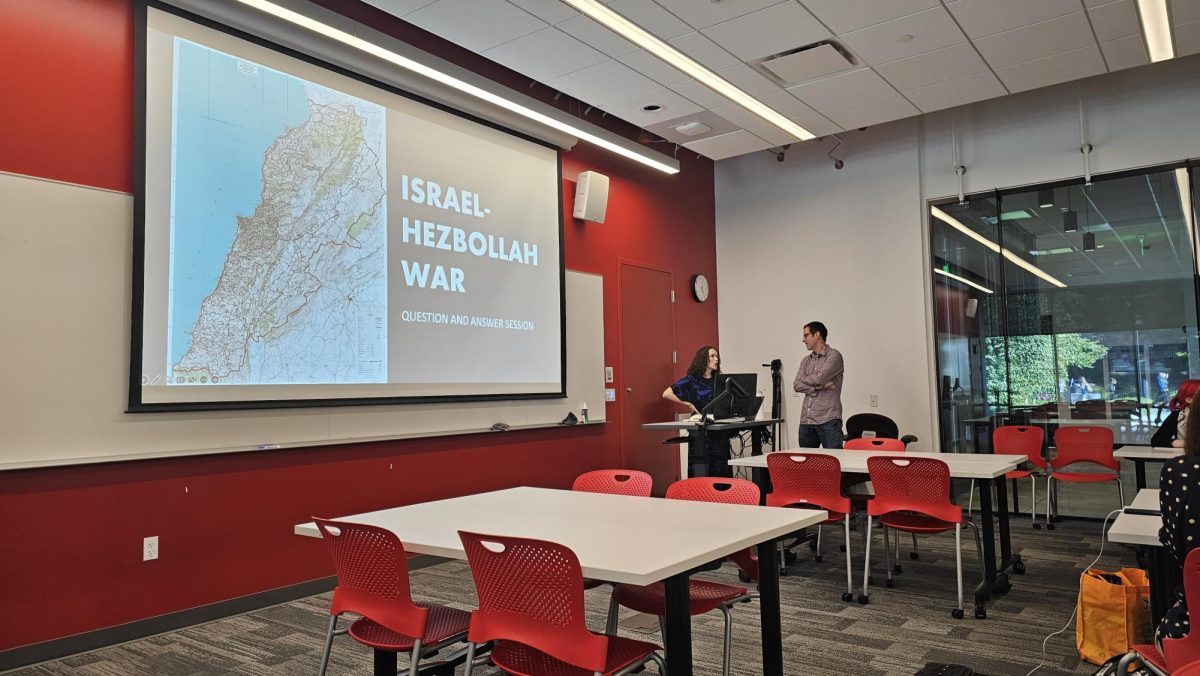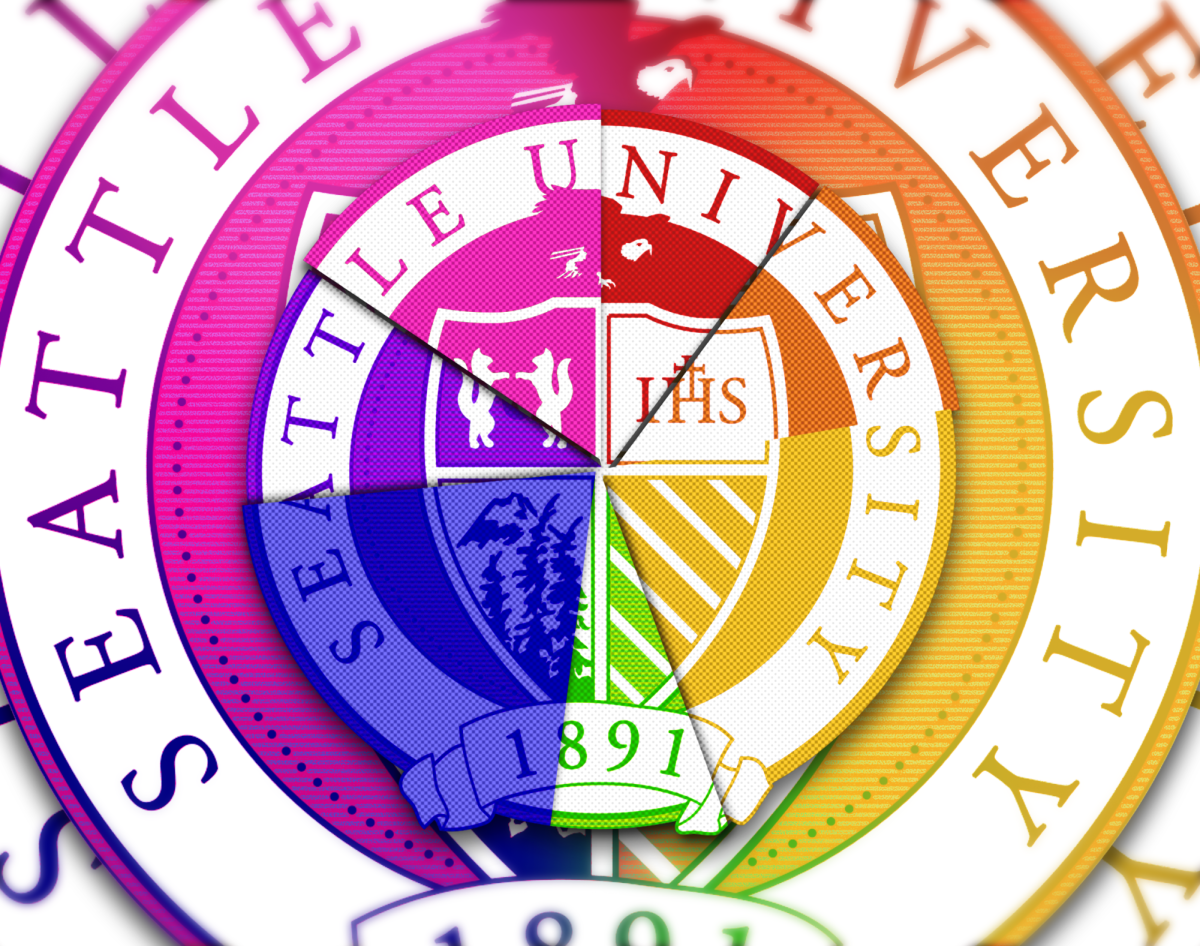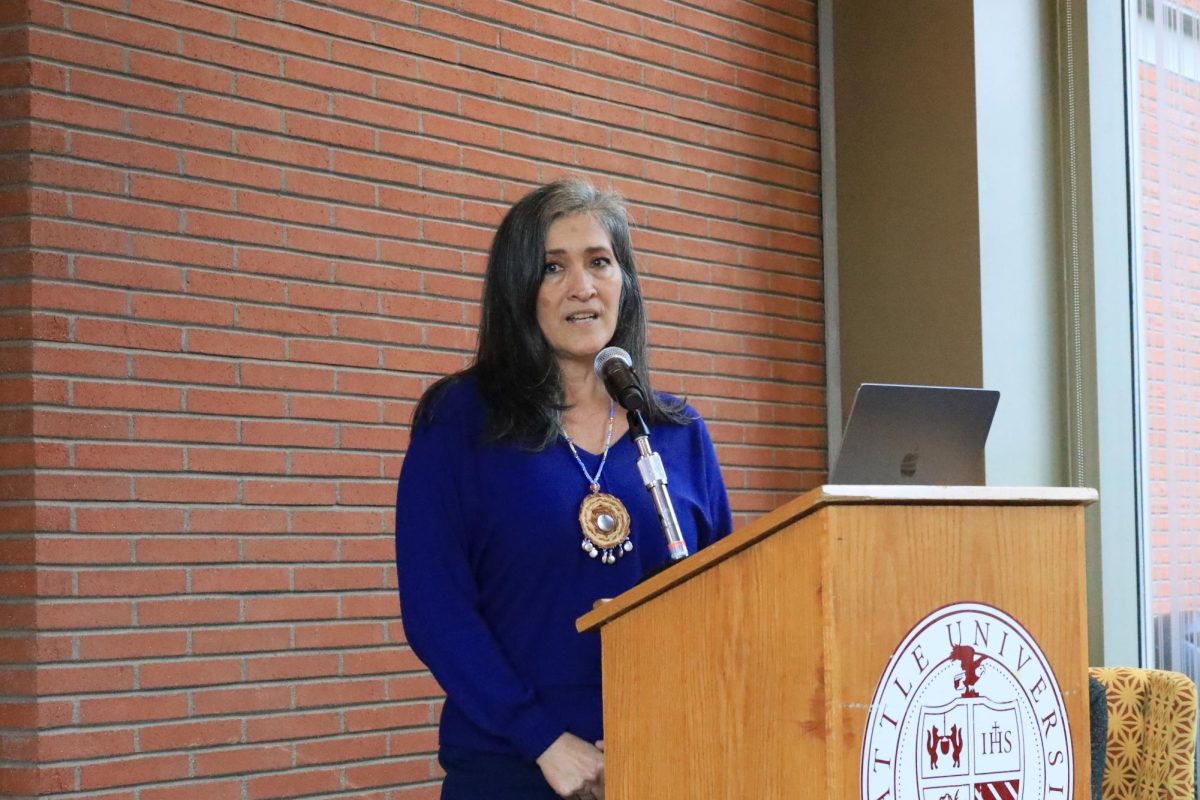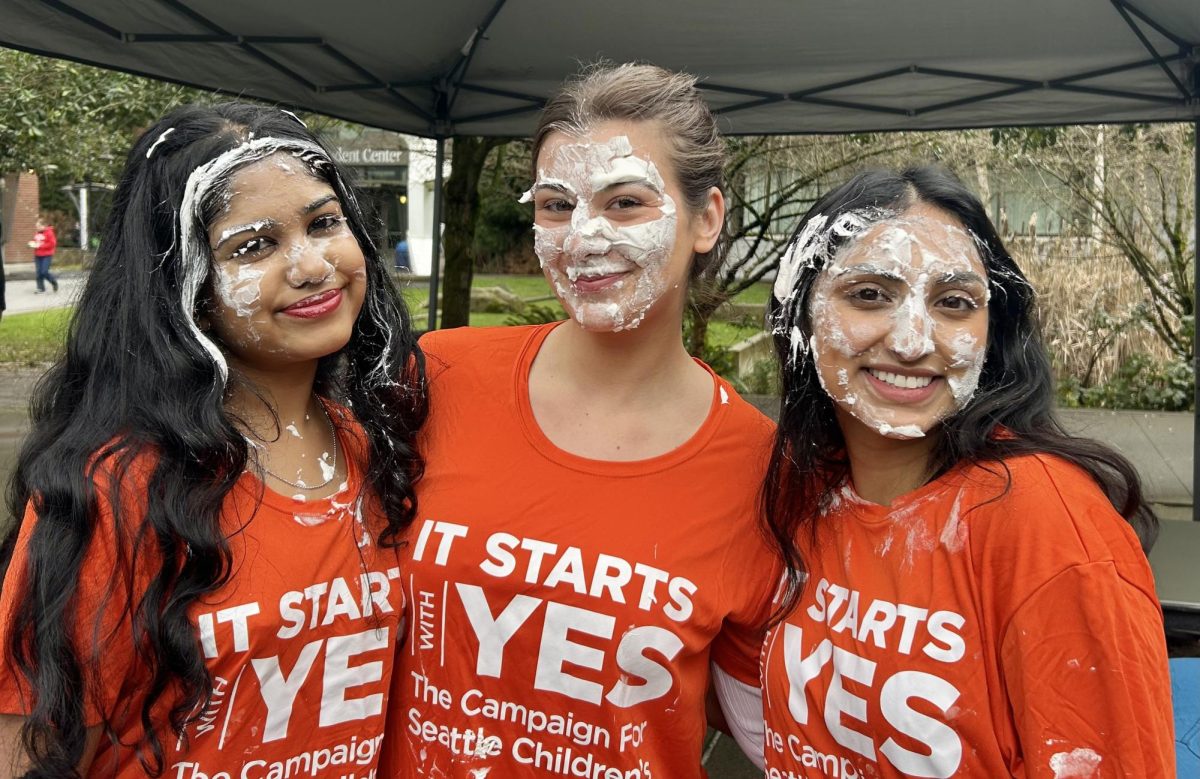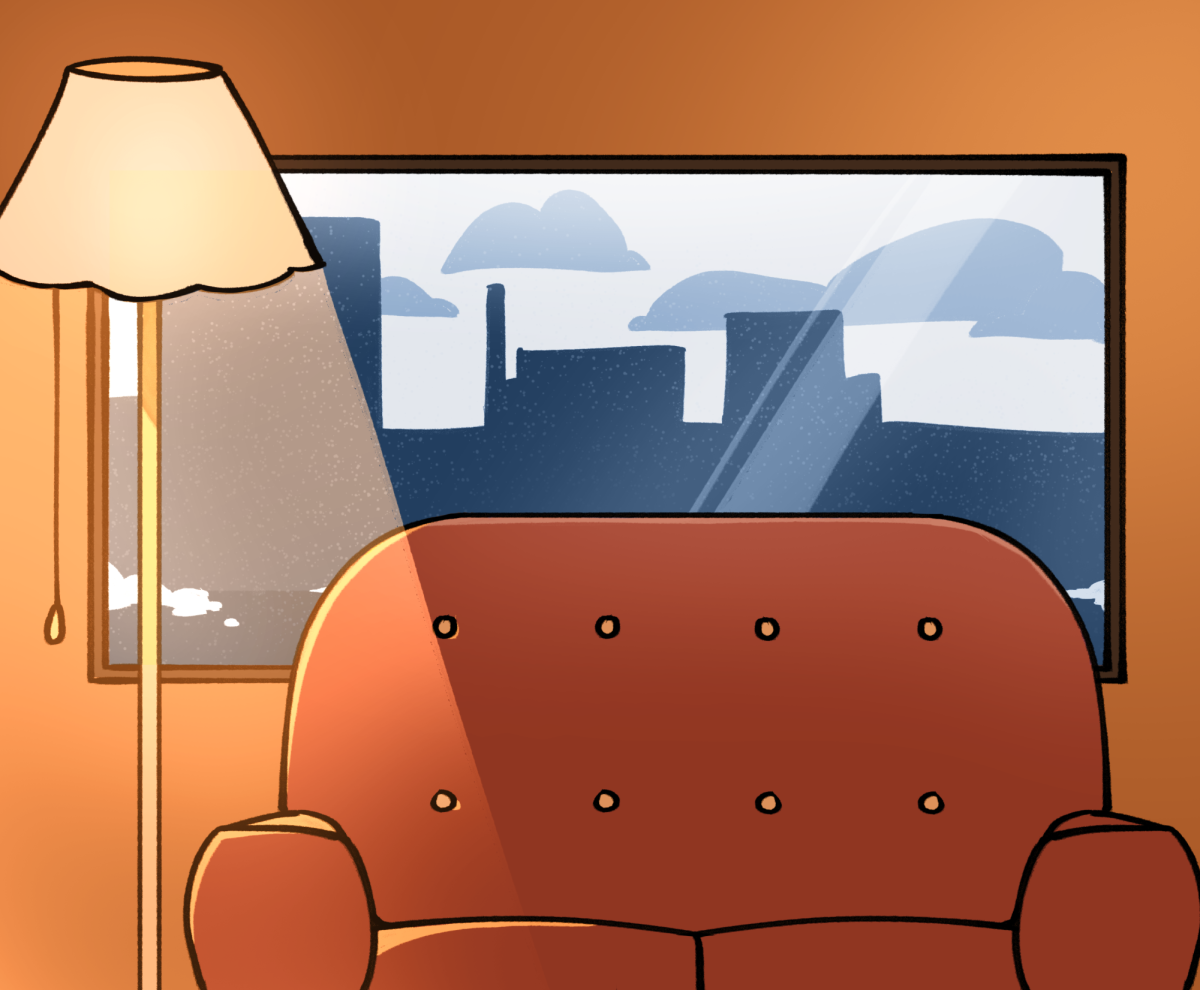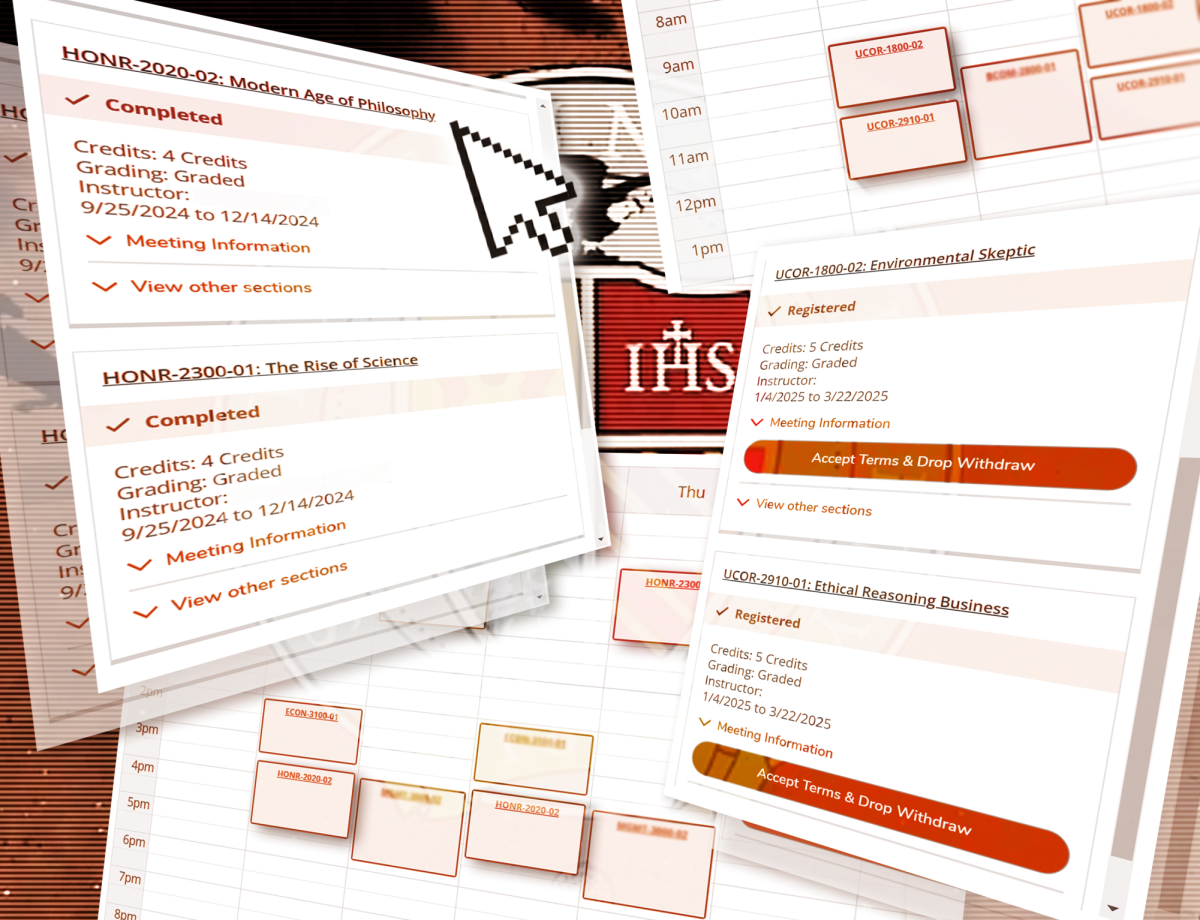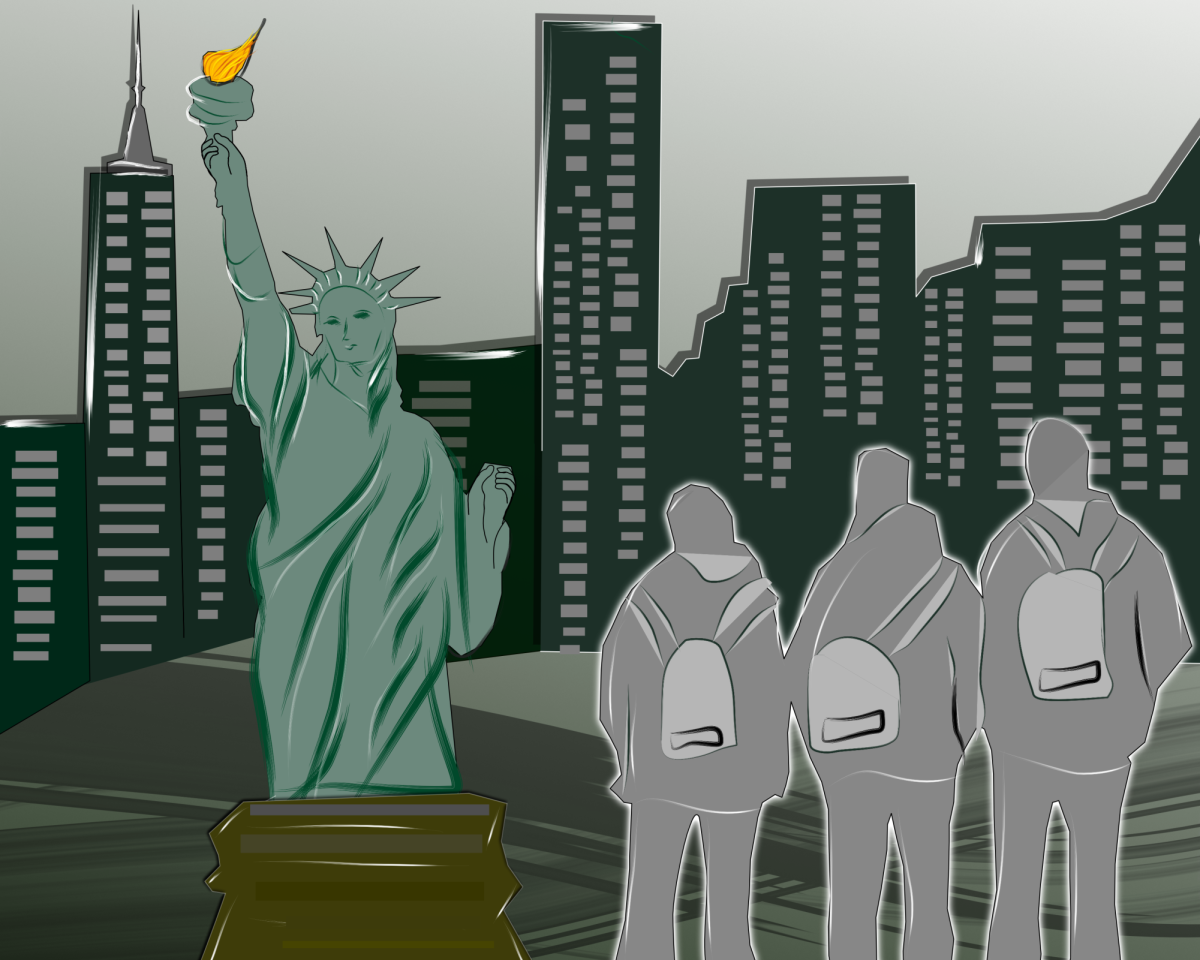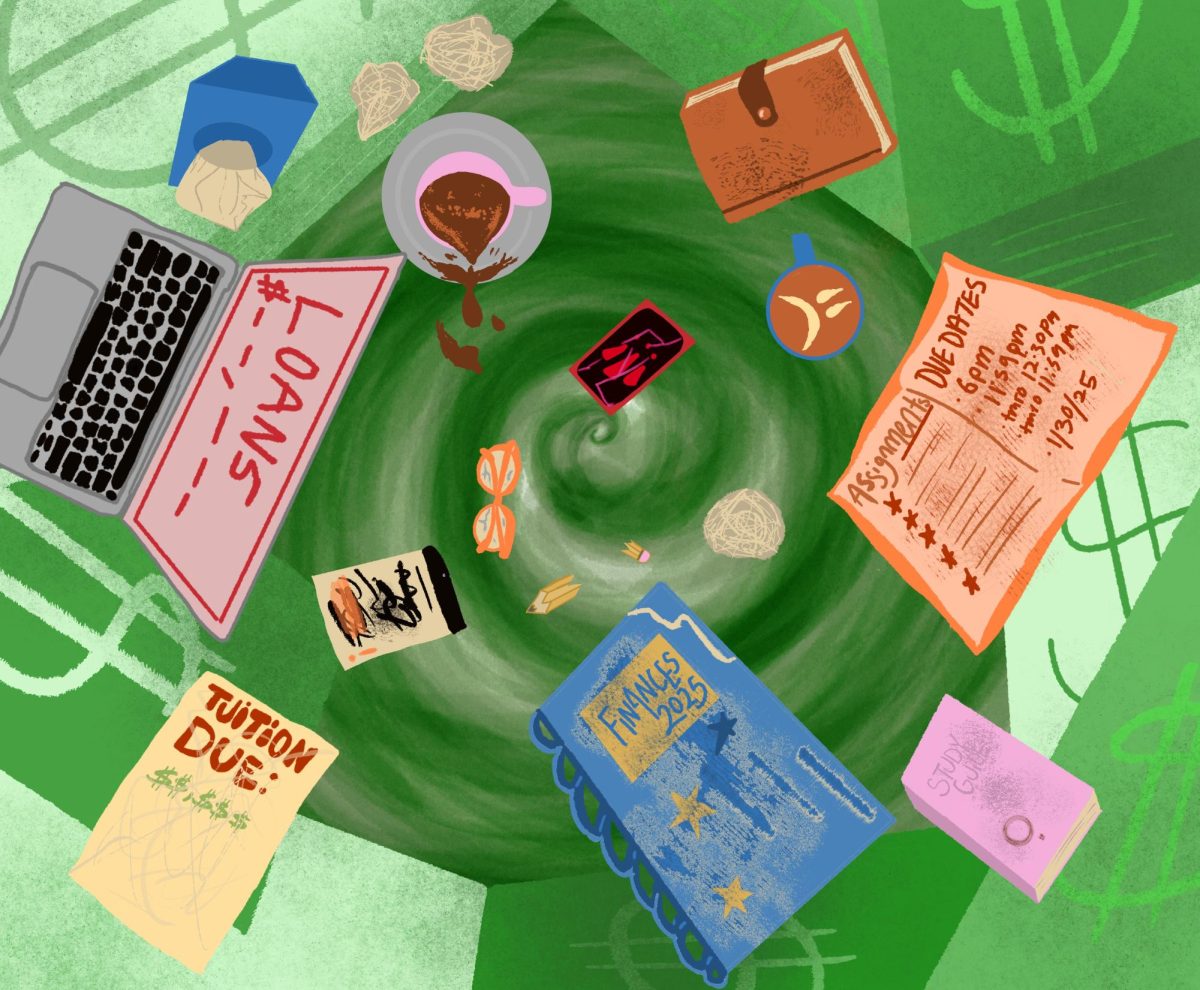At the start of the month, Associate Professor of History and International Studies and Director of Women, Gender & Sexuality Studies, Nova Robinson, held a question-and-answer teach-in for students on Israel and Hezbollah upon the recent invasion and bombings of Lebanon. Robinson specializes in modern Middle Eastern history and international human rights with a geographic specialization in Syria, Lebanon and Palestine.
The first half of the session covered a quick history of the modern nation-state of Lebanon, while the latter half allowed students and faculty to ask important and personal questions. Imaan Khaki, president of the Muslim Student Association at Seattle U, attended and noted her appreciation for how teach-ins function to inform.
“We haven’t all had the opportunity to study the events in Gaza and Lebanon with the depth they deserve,” Khaki said.
Sitting in the session, students raised questions focused on the nature of attacks in Lebanon, expressing concern over the heavy use of bombings in residential neighborhoods and other acts of war.
“What we see sometimes in coverage of the Middle East is that civilians are not given the appropriate protections,” Robinson said. “There’s a conflation between civilians and members of militia organizations, and so people have been making the boundary between civilian and combatant murky to justify engaging in acts of war in areas where there would otherwise not be allowed to have such actions due to international law.”
Israel’s invasion of Lebanon has included the mass killing of civilians, the killing of a U.S. citizen, the leveling of neighborhoods and other civilian infrastructure such as schools and hospitals.
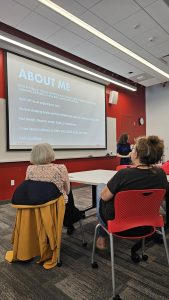
“This is not the first time that Israel has… invaded Lebanon, and each time civilians have faced significant consequences,” Robinson shared.
Bearing witness to the level of civilian suffering and watching from thousands of miles away may feel dystopian to some, especially to those who have ties to the countries being invaded. Lebanese-Canadian writer Lina Mounzer recently expressed in an opinion piece for Middle East Eye her horrors of watching her homeland burn while living in Canada.
“The cognitive dissonance of being in the West while the East burns isn’t simply that misalignment between where your body is and where your mind’s at. It’s being in a place whose every venerable institution insists that this burning is right and good, no matter how barbarous or savage,” Mounzer wrote.
Echoing Mounzer’s written remarks, Nadeen Radi, a fourth-year finance major, expressed similar frustrations with the normalization and desensitization of the types of violence that have and continue to unfold
“All of our lives are proceeding as normal… It is sad to see most people slowly forget about the tragedies we see first-hand [and] not putting in any effort to help out,” Radi said.
Along with concerns over the number of civilians who have been killed in Israeli attacks, one student expressed confusion over the IDF assassination of world leaders. Despite worldwide anti-war calls, U.N. general assembly decisions and even International CriminalCourt rulings, Israel has and continues to act unchecked without punishment.
Domestically, the actions of the current Israeli government have been the subject of much outcry, with mass protests against Netanyahu and the current Israeli government mobilizing thousands in Jaffa (Tel Aviv). However, many of the violent tactics used by the Israeli military have been taken directly from the U.S.’ playbook in their invasion of Iraq and Afghanistan.
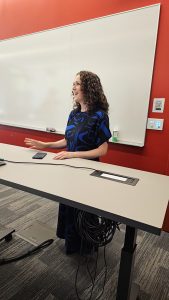
Many students who attended the teach-in hope to see more educational events on campus and further action calling attention to the violence taking place in Lebanon and the eastern Mediterranean region. These calls align with student support for ending the university’s ties with weapon manufacturers such as Boeing.
Nada Hasbini, a member of the Lebanese American Society of Seattle, shared how university members can support those on campus who may be impacted by the events unfolding in Lebanon.
“Universities can support their students right now by showing inclusion/compassion and being flexible with deadlines/grades/projects… students have families back home and the country is in active war, so stress level is high,” Hasbini wrote to The Spectator.
Reflecting on what she feels like is a lack of discussion around the violence, Radi called attention to the sense of disconnect that physical distance may provide students at Seattle U, but calls upon her peers to acknowledge the violent acts as if they were happening locally.
As Radi stated, “A lot of times I think to myself what would happen if what we are seeing in Middle Eastern countries happened in our own community, like Seattle. Would the world remain as silent as it is right now, or would people’s actions change?”


